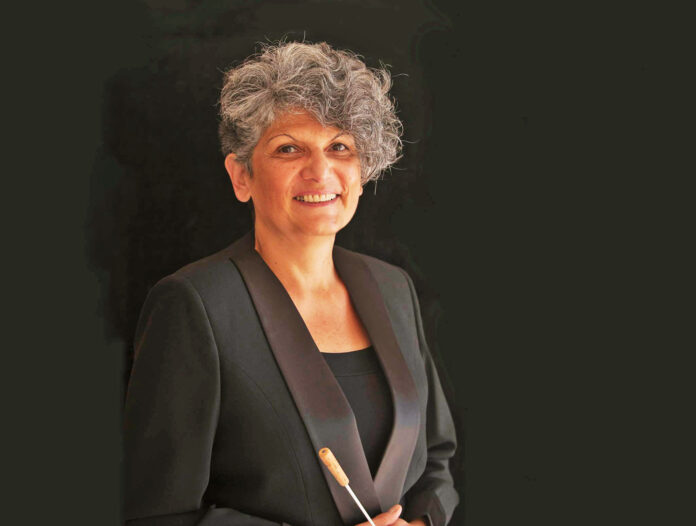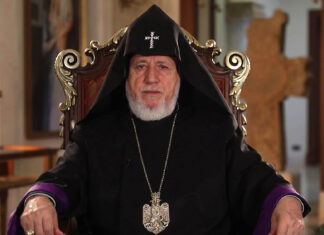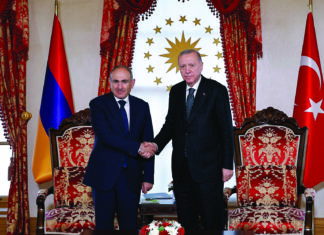YEREVAN — Conductor Nvart Andreassian was born in Istanbul; since 2017, she has lived in Armenia. From 1966 to 1971, she studied at the Romanos Melikyan Music School, Armenia, with Herman Terterian, and graduated with a degree in choral conducting. She emigrated to France where she studied at the Ecole Normale de Musique de Paris, with Pierre Dervaux, and graduated with a higher diploma in orchestral conducting. From 1977 to 1980 she was assistant conductor at the Paris Grand Opera and Orchestre de Paris. Andreassian has taken master classes with conductors and composers Michel Tabachnik, Jean Fournet, Péter Eötvös, Igor Markevitch, Daniel Barenboïm and Arthur Oldham. In addition, she has also studied with Pierre Dervaux and Pierre Boulez and attended courses in music analysis of contemporary music with Max Deutsch and classical music with Sergiu Celibidache and Roland Catoir. Nvart Andreassian has been a prizewinner in the Young Conductors (Besançon, France) and Yehudi Menuhin Foundation (Great-Britain) competitions.
She has been guest conductor of numerous orchestras in Belgium, Brazil, China, Czech Republic, France, Germany, Hungary, Russia, the US, Netherlands. She has been the artistic director of Polychromie Contemporary Music Ensemble and Polychromy Festival. Nvart has given masterclasses and taught in various countries such as Russia, Brazil, Turkey, Armenia, Germany, Belgium, Holland, Uruguay, recorded with different labels and for Classical Radios.
“I have an excellent recollection from my collaboration with Nvart Andreassian during the Festival Polychromy. She gave an excellent reading of my work Ballade des Pendus. Nvart’s know-how and understanding of contemporary music as well as her musical comprehension permit me to look forward to further collaborations and complicity,” said Vincent Paulet, composer, France.
“I can state that her musical maturity and knowledge are combined with a very solid conducting technique. She leads the orchestra with Olympic calm, bringing the best of the musicians to the service of the composer is always very kind, although strict about their performance. As an artist manager, I greatly appreciate her professional approach at this high-level,” added Zdenek Prouza, managing director, Czech Artist Management International.
Dear Nvart, while there are many women among choirmasters, it is not common to see female conductors of symphonic orchestras. Although in my adulthood I was watching famous Soviet conductor Veronika Dudarova’s concerts with great pleasure. How do you explain the lack of female conductors in the musical scene?
What you are saying was a reality in the 20th century, but not in the 21st. Now there are many more female conductors all over the world and this is very new. Societies are changing and becoming more open minded and tolerant to the “others” than before.








